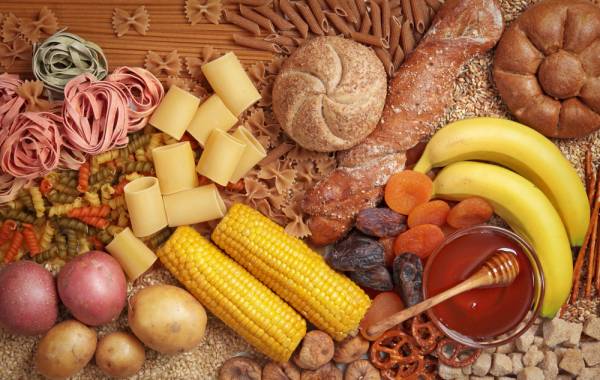As a nutritional coach, one of the most prevalent issues I deal with is high blood pressure. Statistics suggest approximately one out of every three Americans is currently diagnosed with this issue.
High blood pressure is a predetermining risk factor for heart disease, which is the leading cause of death in the United States. Modern treatment plans include medications that can come with some pretty gnarly side effects. The problem is these medications have not shown an increase in life expectancy in the population prescribed them.1 The good news is that in most cases you do not need to rely on medication to solve your blood pressure issues.
Avoiding Salt Isn’t the Answer
Researchers have looked at present-day hunter-gatherer groups and compared their rates of heart disease with those found in the modern world. One study looked at the Cameroonian pygmies in particular. Researchers compared those living the traditional pygmy way with those who migrated to more modern areas. The researchers concluded the hunter-gatherer way of life led to a decreased risk for cardiovascular events.2 This research suggests high blood pressure is a result of some poor lifestyle choices.
RELATED: The Shakedown On Salt – Is It Good or Bad For You?
We are typically told to avoid salt to avoid high blood pressure. However, restricting salt can come with its own negative side effects. One of the effects is actually increased cardiovascular disease risk.3 So what are we supposed to do if we have been told that salt leads to high blood pressure, which increases our risk of heart disease, but now I am telling you that going too low with the salt can also lead to increased disease risk?
“Changing some of our behaviors can drastically alter our blood pressure.”
The answer is, preventing cardiovascular disease is not as simple as limiting intake of a particular substance. It is a dynamic process with many moving pieces. But we can use the modern-day hunter-gatherer groups as a guide to how we can better protect ourselves from developing high blood pressure and raising our risk for heart disease.
The Dietary Factors Behind Hypertension
There are a number of dietary factors that affect blood pressure, not just salt intake. Potassium, calcium, and vitamin K2 all play important roles in regulating our blood pressure.5
In addition, eating a diet high in processed carbohydrates can lead to high blood pressure. In fact, insulin resistance and high triglycerides are more common in those with high blood pressure than the normal population. Lowering blood pressure does not affect these other areas and may explain why correcting blood pressure with medication does not decrease heart disease risk.4

Relaxation = Prevention
Nutrition is not the only lifestyle factor that can help us lower our blood pressure. Stress also plays an important role. I know the majority of us do not think we are stressed out, but if you are not doing something proactive to manage stress, then you most definitely are stressed out.
RELATED: A Way to Meditate (For People Really Bad at Meditation)
The modern lifestyle of limited sleep, financial issues, family problems, sitting in traffic, and being constantly on the go drives our sympathetic nervous system to be active the majority of the time. What we need is balance and to get our parasympathetic nervous system involved. Meditation has been shown to lower blood pressure in a four-month period.6
Focus On Sleep Quality
Most people have poor quality of sleep, as well, without realizing it. I specifically ask people how well they sleep, and I continuously get “good” for an answer. However, these same people state later on that they sleep for four to six hours total and need to wake up throughout the night to go to the bathroom. This is not quality sleep, and inefficient sleep has been shown to raise blood pressure.7
Shut off the lights an hour before bedtime. This includes the TV. Then, get to bed at a time that allows you to get roughly seven to nine hours of sleep.

Get Active
We definitely cannot underestimate exercise’s role in helping us control our blood pressure. Engaging in physical activity is an important part of creating a healthy lifestyle. We all know the health implications associated with being sedentary. According to meta-analysis, exercise can lower both systolic and diastolic blood pressure.8
Going Beyond Medication
High blood pressure is a major health concern and can increase our risk for cardiovascular disease. But taking medication may not be the best solution.
“The problem is these medications have not shown an increase in life expectancy in the population prescribed them.”
High blood pressure is a symptom of living the modern lifestyle. Changing some of our behaviors can drastically alter our blood pressure. This includes sleeping seven to nine hours a night, limiting our intake of processed foods, exercising, and managing our stress.
If you are currently diagnosed with high blood pressure, or are concerned with your blood pressure numbers, take control of your health instead of taking medications.
References:
1. Diao, D, et.al., “Pharmacotherapy for mild hypertension.” The Cochrane Database of Systematic Reviews 2012. Retrieved on January 16, 2015.
2. Lemogoum, D, et.al., “Effects of hunter-gatherer subsistence mode on arterial distensibility in Cameroonian pygmies.” Hypertension 2012. Retrieved on January 16, 2015.
3. O’Donnell, Martin, et.al., “Urinary Sodium and Potassium Excretion and Risk of Cardiovascular Events.” JAMA 2011. Retrieved on January 16, 2015.
4. Reaven, Gerald. “Relationship Between Insulin Resistance and Hypertension.” Diabetes Care 2015. Retrieved on January 16, 2015.
5. Stamler, Jeremiah, et.al., “Relationship to Blood Pressure of Combinations of Dietary Macronutrients.” Circulation 1996. Retrieved on January 16, 2015.
6. Barnes, Vernon, et.al., “Impact of Transcendental Meditation on Ambulatory Blood Pressure in African-American Adolescents.” American Journal of Hypertension 2012. Retrieved on January 16, 2015.
7. Tochikubo, Osama, et.al., “Effects of Insufficient Sleep on Blood Pressure Monitored by a New Multibiomedical Recorder.” Hypertension 1996. Retrieved on January 16, 2015.
8. Kelley, George. Progressive Resistance Exercise and Resting Blood Pressure
A Meta-Analysis of Randomized Controlled Trials. Hypertension 2012. Retrieved on January 16, 2015.
Photos courtesy of Shutterstock.






